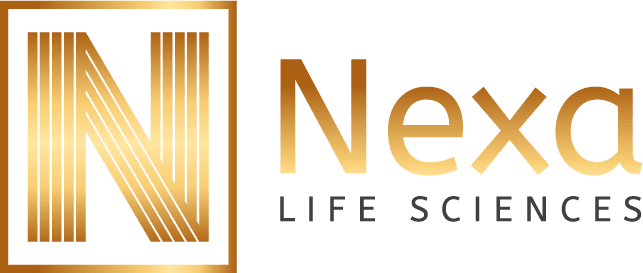Tackling Tough Interview Questions
Interviews can be nerve wracking, especially when faced with tough questions. Employers will ask difficult questions for several reasons, however, most commonly to understand more about how you process information, your adaptability and problem-solving skills. Whether you’re a seasoned professional or just starting your career, being prepared can make a significant difference.
Interviews have certainly changed over the years. From video calls to panel discussions and group interviews, the format can vary greatly. Some are quick, while others can be marathon sessions.
One thing’s for sure: you’re almost guaranteed to encounter a challenging question. Let’s explore why employers ask these tough questions and how to tackle them effectively.
Confidence is contagious! Preparation is key to building confidence and making a positive impression.
Prior to an Interview:
- Before your interview, do your homework! Research the company to demonstrate your interest and motivation. Employers appreciate candidates who understand the business. You can find more on preparing for interviews with our guide at Interview Preparation Guide | Nexa Life Sciences
- Practise makes perfect. Prepare answers to common interview questions. More info on questions can be found below.
During the Interview:
- Stay positive and focused. Listen carefully to the interviewer’s questions and respond thoughtfully. Take your time if you need to gather your thoughts.
- Connect your skills to the job. Using the STAR method to highlight your abilities, achievements and how they align with the company’s needs.
- Be honest and direct. If you’re unsure about a question, honesty is the best policy! Don’t be afraid ask for clarification or even repeat the question. Try and avoid filler words and get to the point.
- Express your interest. Throughout the interview ask questions about the role, your interviewers and the company to demonstrate your interest and enthusiasm.
After the Interview:
- Don’t be afraid to follow up. If you haven’t heard back by the estimated hiring deadline, reach out to you recruiter, HR representative or interviewer. This further expresses your continued interest, but also ensures everyone involved is sticking to agreed timelines and creating a positive after interview experience and maintain momentum and engagement.
- Reflect on your performance. Think about any questions that challenged you and how you could improve your answers for future interviews. If you’d like to discuss your responses further, this is a good time to reconnect with your recruiter or hiring manager.
Interviews are designed to challenge your thinking and assess your suitability for a role. While they can be tough, they’re not meant to make you uncomfortable. Remember, an interview is a two-way conversation. Whilst showcasing your talents and expertise, an interview is the opportunity for you to assess if the company is the right fit for you. Asking thoughtful questions to learn more about the company culture, team dynamics and career opportunities.
Given the vast number of potential interview questions, we’ve narrowed it down to a few common ones you might encounter.
Common Tough Interview Questions
- “Tell me about a time when you have made a mistake.”
- Everyone makes mistakes, there is no denying it. This question is designed to assess your resilience and ability to learn from mistakes. Be ready to discuss a specific scenario where you faced a challenge, how you addressed it and the lessons you learnt. It is also important to address how you implemented changes to avoid similar situations in the future.
- “What is your biggest weakness?” OR “How do you deal with critical feedback?”
- We are all human and everyone has areas for improvement. This question is generally asked in an interview to assess your self-awareness. Whilst acknowledging your weakness it is important, focus on how you actively addressed them. Be honest but positive. Choose a weakness that you’ve taken steps to improve and demonstrate how you’ve overcome it. Demonstrate to your interviewer how you’re turning your weaknesses into strengths.
- If the question is more aligned to feedback that you have received, think of a piece of feedback you have been given, provide a brief explanation of the critique and the steps you have put in place to improve it and work through for a positive outcome.
- “Why should we hire you?”
- This is your chance to sell YOU! This is the perfect opportunity for you stand out from the competition. Employers ask this question to assess your unique qualifications and how they align with the role and test the research you have done into the company. Highlight your relevant skills, experiences, and how they align with the job requirements, what value you can add to the company culture and how it aligns further to your personal motivations. When doing interview preparation, carefully review the job description to tailor your response and demonstrate your understanding of the companies needs. Again, it’s a two way thing and need to be confident that the company is right for you.
- “Describe a time when you disagreed with a supervisor or colleague.”
- Show your ability to handle conflict constructively. Explain how you addressed the disagreement and the outcome. The aim here is to focus on the positive outcome. Emphasise how you were able to resolve the disagreement professionally. This is a perfect opportunity to demonstrate your ability to listen, understand different perspectives and showcase how you communicate effectively. This is a perfect example of when you can structure your answer using the STAR Method (Situation, Task, Action & Result).
- “Where do you see yourself in five years?”
- When answering this question, it’s important to demonstrate career goals and how they align with the company’s vision and yours. This is your chance to show your ambition, and you can be specific! Articulate your long-term goals and career aspirations and how they relate to the industry and the company. Explain how your aspirations align with the company’s growth and development plan.
- “Are you innovative?”
- This question is asked to understand your creating thinking. Don’t just say your innovative, back it up with live examples. Showcase how your innovative ideas have led to tangible outcomes and results. When answering this question, you want to try and emphasise your openness to new ideas and continuous improvements.
- Talk about your curiosity. Explain how your curiosity drives you to explore and experiment.
- ‘What is your most significant achievement?’
- This question aims to assess your values and how you see yourself. Employers often want to know about your extracurricular activities and personal accomplishments. Choosing something you’re truly proud of, whether it involves leadership, overcoming challenges, or perseverance talking about this will allow your passion to shine through.
- Highlight your most valued achievements. This question helps employers understand your career priorities. Think of a recent accomplishment related to the job and explain its significance. Briefly describe the achievement, your role, and it’s important to you.
- “I noticed a gap in your CV, could you tell me more about that?”
- Being unemployed doesn’t define your work ethic and as much as I do not always agree with this question, even more so in the current market, employers are sometimes interested in how you’ve spent your time. If you happen to find yourself in a position where this question does come up be honest, and if you have pursued further courses etc in this time, showcase this.
Preparing for tough interview questions can help you feel more confident and increase your chances of landing your dream job. By practicing, being specific, and staying positive, you’ll be well-equipped to handle any challenge that comes your way.
Remember, interviews are an opportunity to showcase your skills and personality. Good luck!




